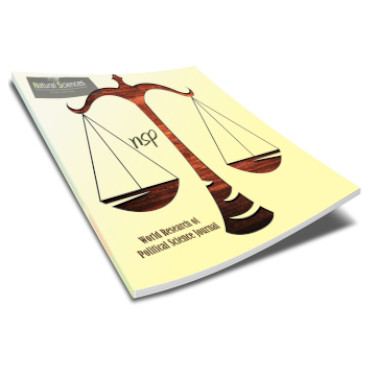
The World Research of Political Science Journal
Abstract
A topic of discussion in the twenty-first century is the connection between madrassas and extremism. After terrorists launched one of the deadliest attacks on American soil on September 11, 2001, which claimed almost 3000 lives, it gained attention on a global scale. The outcry that followed led to Muslim countries being scrutiny and labeled as the other," drawing attention from throughout the world. Islamic learning institutions like madrassas appear under increasing global attention when different claims were made that they were encouraging and fostering "anti-western" attitudes among the populace, which in turn was fueling terrorism in Muslim countries. As America entered with force in Afghanistan in October 2001, a significant image of the Muslim community in the western media was the Taliban fighters in Afghanistan. The medias focus on madrassas conveniently ignored the numerous socioeconomic roles that these institutions play in the Muslim community area by giving poor people access to necessary education and instead formed an impression that all madrassas are linked to terrorism and extremism. The function that Islamic madrassas play in encouraging religious extremism in Pakistan has been objectively examined in this study."
Recommended Citation
Munir, Tajjalla
(2022)
"Extremism in Pakistan’s Society and the Role of Madrassas: A Critical Analysis,"
The World Research of Political Science Journal: Vol. 5:
Iss.
2, Article 2.
Available at:
https://digitalcommons.aaru.edu.jo/wrpsj/vol5/iss2/2

